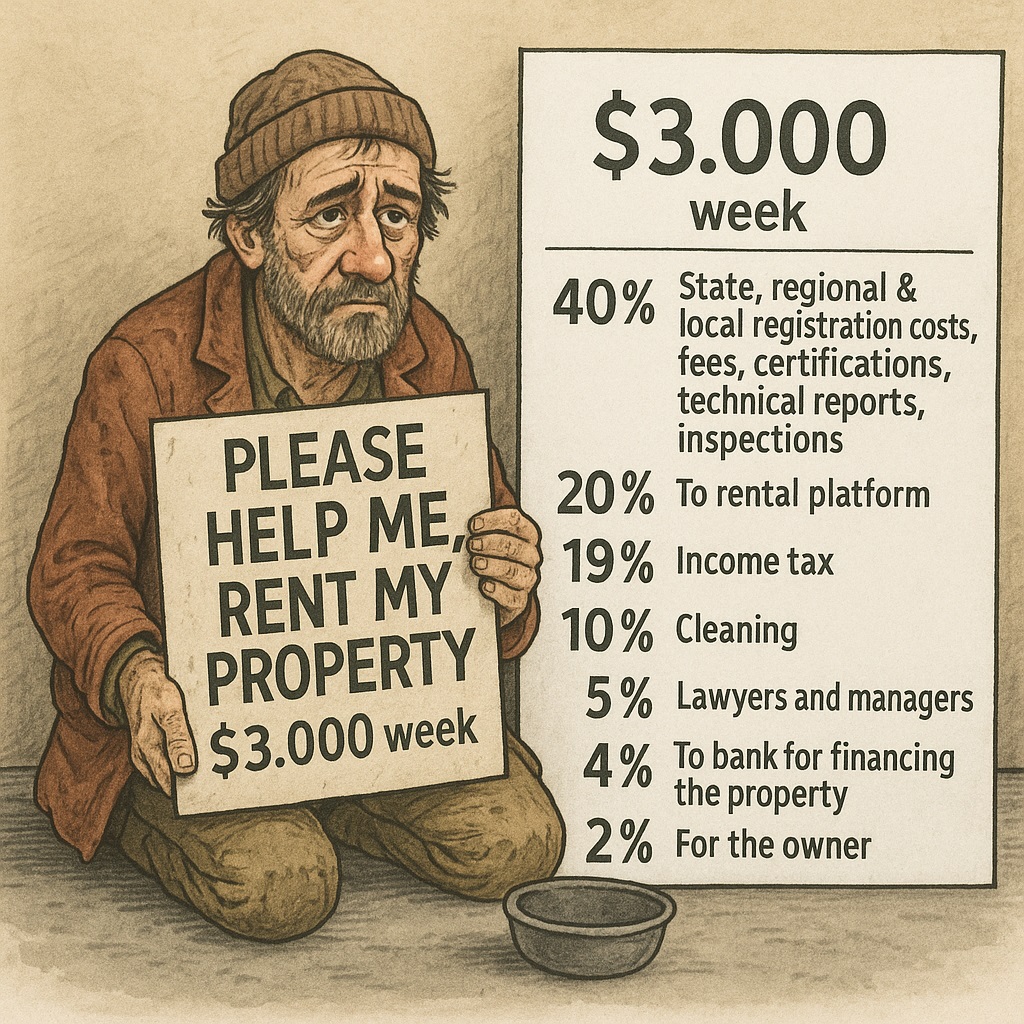For properties or rooms intended for short-term rental and marketed on online platforms, there is a new requirement to be registered in a national register called “Registro de Alquileres de Corta Duración”. This formal obligation came into force on January 2, 2025, but its provisions take effect on July 1, 2025.
It is a state register, so it operates independently of the obligations to register in each Autonomous Region.
The consequences of this new measure are predictable. We have already reported on the latest changes to the Horizontal Property Law that allow communities of owners to ban certain rentals (https://lexforis.com/further-restrictions-on-holiday-rentals/). We also covered the changes by the Generalitat Valenciana that significantly limit tourist rental options (https://lexforis.com/holiday-homes-rental-act-valencia/). Combined with the tax challenges currently associated with this activity in Spain (https://lexforis.com/renting-out-properties-in-spain/ and (https://lexforis.com/renting-out-properties-in-spain-part-2/), the future looks grim. This will affect property investment, the tourism offer, and without a doubt, the broader tourism market.
 According to the approved regulation, this aims to increase the availability of reliable information and overcome “certain difficulties in inspection tasks” regarding short-term rentals, and are presumed to include a “significant proportion of rentals in legal fraud.” In other words, yet another step towards the Big Brother phenomenon and another blow to the tourism sector.
According to the approved regulation, this aims to increase the availability of reliable information and overcome “certain difficulties in inspection tasks” regarding short-term rentals, and are presumed to include a “significant proportion of rentals in legal fraud.” In other words, yet another step towards the Big Brother phenomenon and another blow to the tourism sector.
The new register affects both vacation home rentals and other short-term rentals, including room rentals.
It does not apply to rentals where the property is the tenant’s primary residence. The new regulation does not define a specific duration for what constitutes a short-term stay. Instead, it depends on the purpose of the rental agreement rather than its duration.
A “short-term accommodation rental service” is considered to be the rental, for a brief period, of one or more furnished units (entire property or room), whether for tourism or not, in exchange for payment, via an online platform, whether on a professional or non-professional basis, regularly or irregularly.
The Unified Rental Register in Spain distinguishes between tourist rentals and temporary-use rentals. Both must have a registration number, but different regulations apply:
- Tourist (vacation) rentals: accommodation for vacation stays of less than 30 days. To obtain a registration number, owners must comply with local or regional regulations. This may require a tourist rental license or, in some cases, a simple sworn declaration or prior notice.
- Temporary or seasonal rentals: typically rentals of more than one month, such as student rooms, temporary work stays, or medical treatment stays. These do not require compliance with tourist rental rules of each region or municipality.
The short-term landlord is responsible for obtaining the registration number, notifying the online platforms where the property is listed, and responding to information requests from authorities. Online platforms must include this number in every listing. A property cannot be listed without it.
Lex Foris’ “Gestión” department can help you register the property in the new register.
Roeland van Passel
